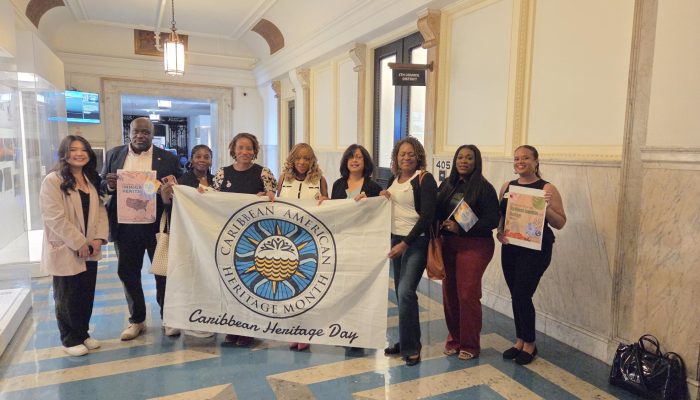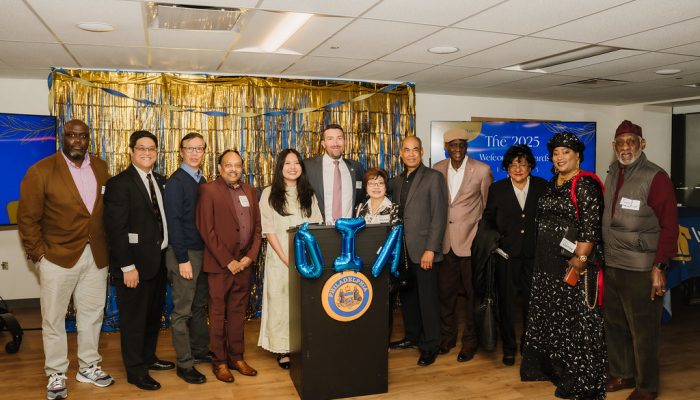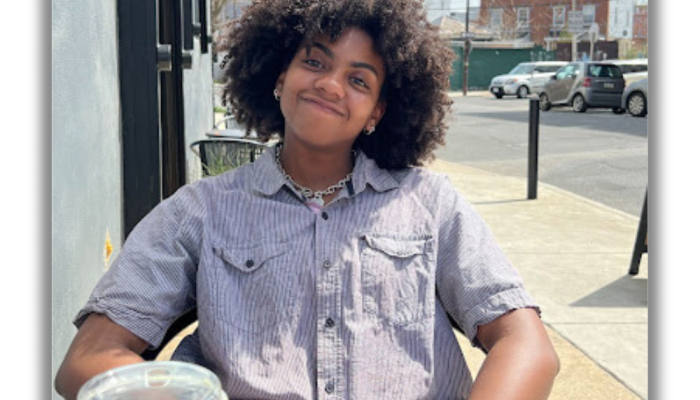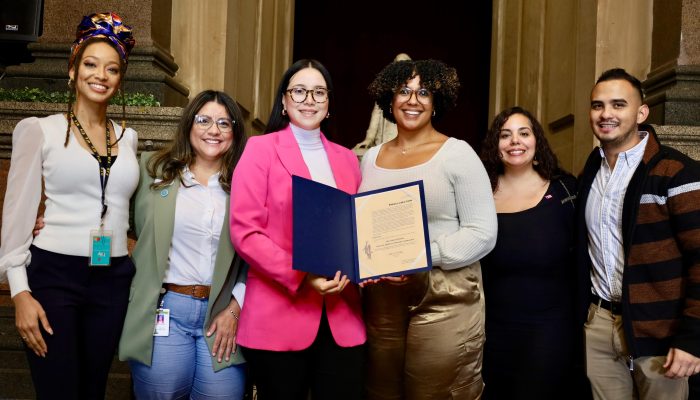In honor of Caribbean Heritage Month, the Office of Immigrant Affairs sat down with Michelle Tulloch-Neil, a proud Jamaican woman and community leader in the City of Philadelphia. In this interview, Michelle opens up about her experiences as a Caribbean living in the U.S.— the challenges, the rewards, the importance of community, culture preservation, and what it truly means to celebrate Caribbean-American identity. Michelle’s story is a powerful example of how immigrant communities contribute to the cultural richness of our beloved city!
The Sit Down with Michelle Tulloch-Neil
Can you share your journey and how your Caribbean heritage has shaped who you are today, both personally and professionally?
My journey is grounded in the values, culture, and resilience of my Caribbean heritage. Raised in a Jamaican household, I learned hard work, respect, and the power of community—lessons that still guide me.
My heritage gives me pride and identity, shaping how I lead, connect, and solve problems. I carry Caribbean creativity, determination, and adaptability into every space, with a deep responsibility to uplift our community. This sense of responsibility inspired me to host a “United for Excellence” conference, focused on the pillars of health, education, crime, and commerce—issues that deeply affect our community’s future.
Being Caribbean isn’t just part of my story—it’s the foundation of it.
Caribbean Heritage Month celebrates the diverse histories and cultures of the Caribbean diaspora. How do you emphasize the importance of preserving and promoting your cultural roots, values, and history?
Preserving Caribbean heritage is both personal and collective. I honor it through storytelling, cultural pride, and sharing our history in families, schools, and workplaces.
Mentorship and support for Caribbean creatives and entrepreneurs help keep our culture alive and evolving. Beyond celebration, I advocate for year-round representation in media, leadership, and policy.
Our culture isn’t just to be remembered—it must be lived, respected, and shape the future.
As a community leader, what challenges do you feel the Caribbean community continues to face, and how do you work toward overcoming them?
As the Global Jamaica Diaspora Council Representative for the Northeast, I see visibility and representation as major challenges for our community. Despite our contributions, we’re often overlooked and face economic gaps, limited resources, and generational divides.
Fragmentation also limits our collective power. To address this, I focus on collaboration, empowerment, and education—uniting people across islands, generations, and sectors.
Owning and sharing our stories is key. When we control our narrative, we shape our future—and that’s what drives my work every day.
What is the most rewarding aspect of your work in community organizing for the Caribbean community?
The most rewarding part of my work is seeing real impact—when people feel seen, heard, and empowered. From mentoring youth to supporting businesses and celebrating culture, these moments remind me why this work matters.
It’s fulfilling to witness unity across islands and generations and to help create spaces where our culture thrives.
Above all, it’s about legacy—building a foundation for future Caribbean generations to rise stronger, more connected, and more visible.
Can you share a meaningful or memorable experience from your work within the Caribbean community?
After Hurricane Beryl, I witnessed incredible unity—people came together to support all islands, showing the deep solidarity of the Caribbean community.
Another powerful moment came after seeing the digital divide in Jamaican schools. I shared what I saw, and with broad support, we provided laptops to 18 schools—proving how awareness and collective action create real change.
How has being part of the Caribbean diaspora shaped your sense of belonging, both within your community and in wider society?
As the Global Jamaica Diaspora Council Representative for the Northeast USA, I’m proud to serve a vibrant, diverse community that continually inspires me. My Caribbean heritage grounds my identity, even as I navigate spaces that don’t always reflect it.
I find strength in our shared culture and see it as both a responsibility and an opportunity—to bridge cultures, advocate for representation, and create space for others to belong.
True belonging means standing firm in who you are and helping shape inclusive spaces for all.
What does Caribbean Heritage Month mean to you, and how do you see it impacting future generations of Caribbean Americans?
Caribbean Heritage Month is more than a celebration—it’s a declaration of identity, resilience, and impact. It honors our history, showcases our culture, and highlights our contributions across all sectors.
It’s a platform for visibility and pride, especially for young Caribbean Americans, offering connection, inspiration, and a vision of themselves as future leaders and changemakers.
How do you see Caribbean communities contributing to the broader cultural, social, and civic life of the city or country?
Caribbean communities are essential to society’s cultural, social, and civic fabric. From music and cuisine to entrepreneurship and leadership, our impact is widespread. We bring resilience, strong support networks, and a culture of excellence that uplifts others.
More Caribbean voices are stepping into leadership, advocating for equity, and driving change. We don’t just participate—we help shape the soul of society.
What advice would you give to organizations or allies who want to better support and uplift Caribbean communities year-round, not just during Caribbean Heritage Month?
Meaningful support happens behind the scenes—through consistent, intentional action. Engage Caribbean communities year-round, not just in June. Include us in planning, policy, and leadership, not just celebration.
Support our growth by investing in businesses, culture, and grassroots work. Representation matters—but so does economic empowerment.
Above all, listen and respect the diversity of our islands. True partnership means showing up, following through, and helping create lasting change.
As we celebrate this month, what hopes or dreams do you have for the future of Caribbean representation and unity, in Philly or beyond?
I hope to see Caribbean communities—here in Philly and across the diaspora—grow in visibility, unity, and influence. I envision a future where our stories are centered, our leaders are empowered, and our youth see their culture as a source of pride and opportunity.
Stronger collaboration across islands and generations can help us speak with one voice, advocate for our needs, and celebrate our impact. In education, business, and civic life, we have so much more to achieve—together.
In Philadelphia, I imagine a Caribbean presence fully woven into the city year-round—not just celebrated, but recognized, supported, and uplifted.
On June 5, 2025, Councilmember Jamie Gauthier introduced a resolution honoring Caribbean Heritage Month alongside Immigrant Heritage Month, recognizing the vital contributions of Caribbean and immigrant communities to the city. We encourage everyone interested in learning more about Caribbean events happening in Philadelphia to visit Office of Immigrant Affairs Immigrant Heritage Month website.




